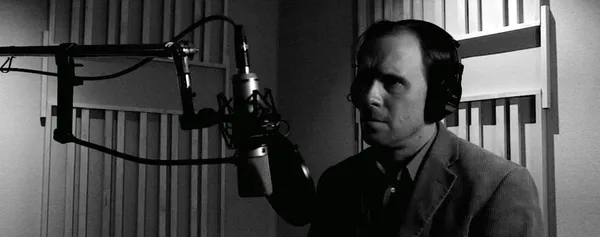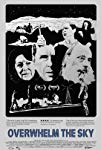Eye For Film >> Movies >> Overwhelm The Sky (2018) Film Review
Overwhelm The Sky
Reviewed by: Jennie Kermode

The late 18th Century was a period of cultural turmoil the like of which we haven't seen since until, perhaps, the present day - not so much a period defined by war as one defined by all the questions that come afterwards as national and international structures were reshaped and an absence of familiar rules led to psychological uncertainty. As Europe explored the changing relationship between individuals, tradition, duty and existential uncertainty through the Gothic, North America was just beginning to find its own literary voice, to get beyond simple adventures and romances into material that probed its own trouble psyche. Out of that troubled place came Charles Brockden Brown's Edgar Huntly, Or Memoirs Of A Sleepwalker, a book which is notable as one of the first to acknowledged the psychic horror of what European settlers had done to the native population. It's a book full of guilt and a lingering fear that's difficult to locate in anything specific, themes that have echoed through US art ever since.
Revisiting Brown's work in another turbulent age, Daniel Kremer repositions the Huntly story in present day San Francisco. Drifting around the city before the narrative takes hold, we are immersed in its peculiar landscape as readers once were in Brown's landscape of crags and crevasses. Although many of the buildings are only one or two stories tall, Kremer uses the established techniques of film noir to make them appear to loom towards us, as if the setting itself were malignant. His Edgar, played by co-writer Alexander Hero, is a talk radio presenter from the East Coast, travelled into this different cultural space to marry a woman who ends up slipping in and out of the story as if she can be summoned only by an effort of his will. He's distracted, as is she, by the death of her brother, his best friend, recently found stabbed in nearby parkland. Confronted by the terrifying possibility that such violence might happen randomly, Edgar becomes obsessed, searching for meaning, at first trying to solve the mystery like some TV detective, then gradually coming to approach it in more esoteric ways that betray his loss of faith in reason and his shifting perspective on what's real.

It's a big subject to take on and Kremer has made the mistake that many artists do in such circumstances by trying to cram in too many layers of possibility and interpretation. The film feels top-heavy and overlong, but that's not to say that there isn't a lot of powerful work in there. Aaron Hollander (also a co-writer) contributes some of the finest film noir cinematography to have graced the screen for years, giving the film a distinctive, gritty texture which makes everything feel a little bit too real, too close for comfort. It lends itself perfectly to the mysterious bruises that start to appear on Edgar's own skin, to the China doll loveliness of his fiancée or the rougher, aged in glamour of Tiziana Perinotti's fleeting femme fatale, who performs a glorious dance routine halfway through the film. It finds the perfect complement in Costas Dafnis' intense, unforgiving score, which occasionally becomes repetitive during lower key scenes but is rightly bold when communicating Edgar's flashes of awareness that nothing is quite as it ought to be, that this is not the world as he understood it.
Edgar's obsession with a drifter (the servant of Brown's novel) is intelligently drawn, neatly reversing familiar roles with the drifter being calm and focused and not at all impressed by our hero's increasingly strange interest in him. Like everyone who's been on the streets for any length of time, he knows that money or food are not worth risking his personal safety; he will have seen madness before and the way he keeps Edgar at a distance is a clear warning. But could he be responsible for the friend's death? Could it be that he did it without even knowing? He sleepwalks. Through this and related devices, the film repeatedly contests the notion of the coherent self.
Edgar's relationship to Native people differs, of course, from the original, and perhaps the cleverest aspect of this adaptation lies in how the writers have managed this change so that viewer's can still pinpoint his underlying racial anxieties and the sense of two immiscible cultures swirling around one another. What has shifted is, more than anything, the place where the viewer's sympathies are expected to lie. Women are not compliant here; homeless characters are not eager to be helped and housed. White male guilt is complicated by white male insecurity. No matter where he goes, Edgar can't find a place that will allow him to impose his reason; even his own body seems to betray him, taking him back to the start: a man runs out from scrubland onto a road, waving his arms. We have seen him in other films. He seems about to warn us of some terrible, alien threat, but he's obviously confused. Has he been sleeping?
Overwhelm The Sky is wildly ambitious and brave and imperfect. Films like this don't come along too often, so you might want to give it a try.
Reviewed on: 19 Nov 2019
















